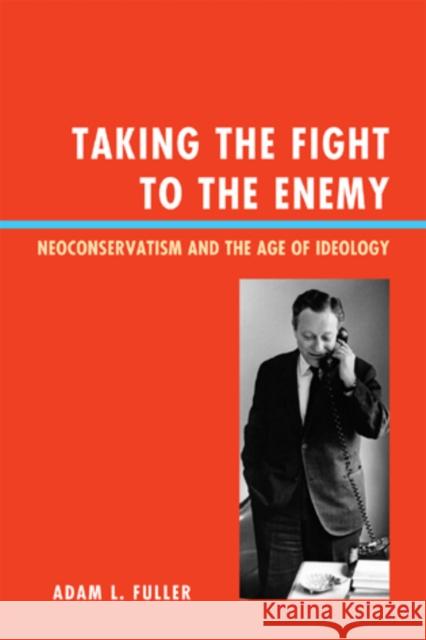Taking the Fight to the Enemy: Neoconservatism and the Age of Ideology » książka
Taking the Fight to the Enemy: Neoconservatism and the Age of Ideology
ISBN-13: 9780739167571 / Angielski / Twarda / 2011 / 284 str.
Taking the Fight to the Enemy: Neoconservatism and the Age of Ideology
ISBN-13: 9780739167571 / Angielski / Twarda / 2011 / 284 str.
(netto: 473,84 VAT: 5%)
Najniższa cena z 30 dni: 492,45 zł
ok. 30 dni roboczych
Bez gwarancji dostawy przed świętami
Darmowa dostawa!
Neoconservatism is more of a disposition than a single political theory, but it is an attitude that has had a profound impact on the broader conservative effort in the United States since the Fifties. It is a unique blend of skepticism and fortitude about a host of wide-ranging issues, spanning culture, economics, and national defense. This book looks at six "neoconservative" intellectuals--Irving Kristol, Gertrude Himmelfarb, Norman Podhoretz, Midge Decter, Daniel Bell, and Nathan Glazer--and the intellectual influences on their thinking about the defects of communism, fascism, progressivism, the dominant American culture, and even capitalism itself. This book looks at the gestation of political criticism within the pages of the neoconservatives' own writings, as well as the books they read and the thinkers they either learned from or came to fear. The book looks at the ways in which the neoconservatives adapted Lenin's formula for success to conservative efforts in the United States, arguing that neoconservatism is an "anti-ideology ideology," in that it considers a "New Class" of professional, ideologically motivated reformers to be the greatest problem facing the United States because of their increased efforts to technocratize ordinary life, their moral relativism, their efforts to usurp human nature and supplant it with their own utopian visions, their anti-Americanism, and their unwillingness to face imminent dangers threatening the American way of life. The book argues that the neoconservative political strategy is to "take the fight to the enemy."











